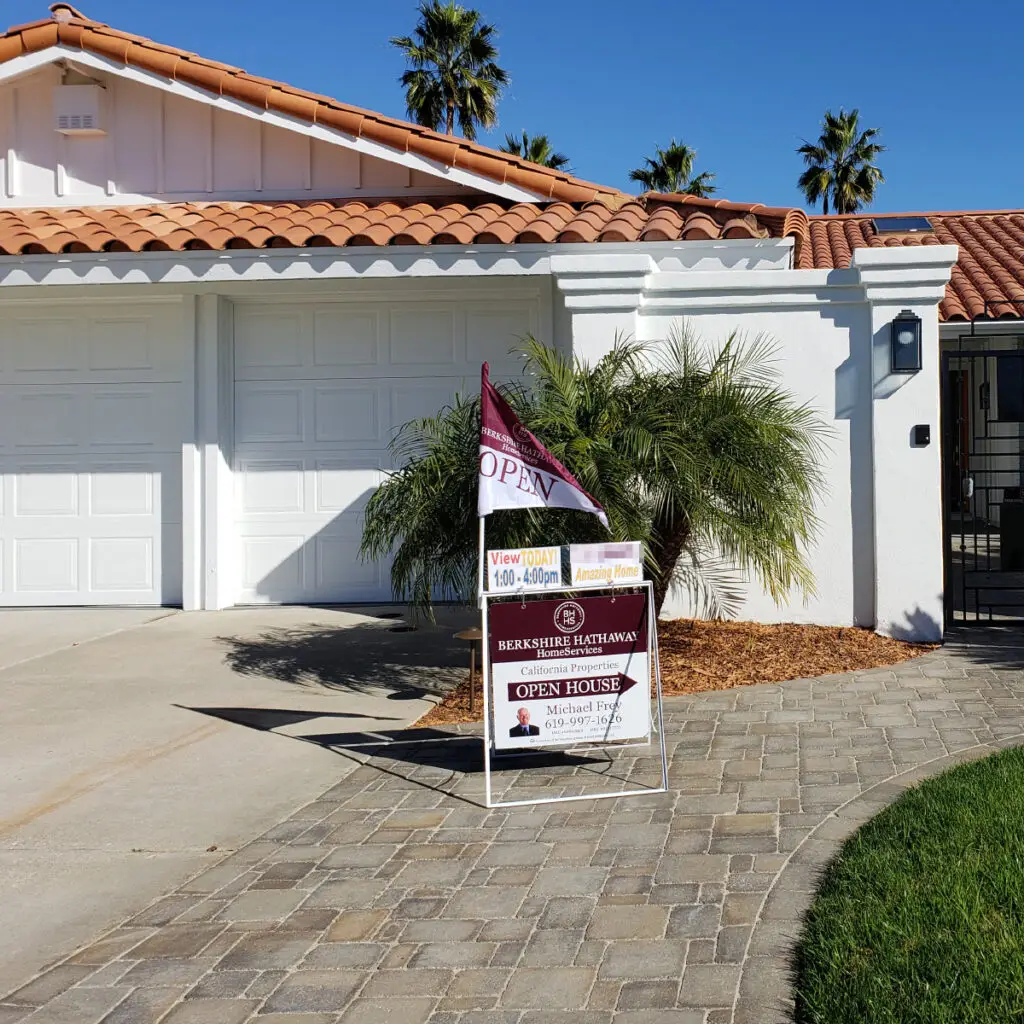Curious About Selling Your Home?
Why Am I Different Than All The Other Realtors
What sets me apart from other realtors is my commitment to truly understanding your unique needs and circumstances. Your decision to sell your home is personal, and the best way I can assist you is by visiting your property with you. This way, you can tell me in your own words what makes your property special. Additionally, you’ll have the chance to meet me and see if I am the right realtor for you. For me, it’s all about listening—that’s how I ensure my clients get what they want.
You can reach me, Mike Frey, at 858-330-1242 or email me at [email protected]. You’re also welcome to send me a message anytime by clicking here.
What Additional Services Do I offer when Selling Your Home?
Generating excitement and attracting the right people to view your property is extremely important. It’s not just about the volume of viewers but the quality of buyers we target. We want qualified, motivated buyers who are eager to purchase your home. Reaching these individuals is my job, and I do it through aggressive marketing of your property. This includes print marketing in prestigious magazines like Dream Home and others, as well as intensive social media campaigns. Additionally, we can hold massive open house events to draw in serious buyers. These are all topics we can discuss when we meet up.
Strategies I use to Sell Houses
Five Categories of Home Selling based upon your needs.
- Sell for Top-Dollar. (Click Here for Pinnacle Program) Additional time is needed. about 15 Days.
- Advanced, “High Mark” Home Selling. For people who want to set the High Point in the Neighborhood. (Advertising Campaign, Video, Print, US Mail, Mag’s, Social Media, Berkshire Massive Network. (The normal way I sell houses)
- Traditional Sell, Lower Selling point, Lower commissions, listing on the MLS. No Advanced Advertising. (What ALL the local Realtor Do to sell Houses in the area, nothing special) Generally, I will not take the listing, it’s not what i like to do.
- Wholesale, I work with 20 Investors who buy and flip. They will buy almost anything. About 30% below what they think they can sell it for after fixing it up.
- I will buy your house. Sure, it may be a Respectful “Low Ball” offer, but it’s Cash in Hand. (Your Choice)
Call me, let’s talk. There is no obligation to have me sell your home if you are just exploring your options. Talking is free. 858-330-1242 Mike Frey Realtor.



Some Reasons You May Want to Move?
As you navigate through, have you considered the exciting possibilities that selling your home could unlock for you? For many in the 55 plus bracket, this period marks a time of reflection, ambition, and, most importantly, opportunity. Let’s explore a few reasons why selling your home now could be a smart and rewarding decision.
Downsizing for Freedom:
Many homeowners find that as they approach a new chapter in life, their needs change. A larger home might not only be more than you need, but it also requires more maintenance and higher expenses. Downsizing can free up your time and finances, allowing you to focus on what truly brings you joy, be it travel, hobbies, or starting a new venture. I have a unique system to help make this transition easy and profitable. It is called Pinnacle Program, and it can make you some money using the program.
Relocation for Lifestyle:
Have you always dreamed of living near the beach, in the countryside, or perhaps closer to family and friends? Now could be the perfect opportunity to make that move. Relocating can offer a fresh start, new adventures, and the chance to create memories in a new setting that better suits your current lifestyle and preferences.
The Market is in Your Favor:
With a keen eye on the market trends, I’ve observed that now might be an opportune time to sell. Demand for homes remains strong in many areas, potentially making your property more valuable than you realize. Selling now could maximize your return, providing you with greater flexibility and options for your next step.
- Proposition 19 and if fixed 13 & 60 & 90. I you’re over 55 you can transfer your existing property tax to your new home. Here is a video from Jordan Marks Chief Deputy Assessor of San Diego.
What About ADU?
Can You Sell Your ADU?
The Short answer is YES, (As of 6/2024) and No. AB1033 allows you to sell ADU, but your city needs to approve the law. So in San Diego, Today as of (7/2024) No, it’s not approved.
ADU Gurus: Can help you with your ADU questions, Like can I build an ADU, How Big, And all the little details. Lisa charges $150 for a consultation, and you get it back if you use her for the construction, etc.
ADU Guru, Lisa De Jesus (760) 313-1000
450 S. Melrose Dr. Vista, CA 92081
I have met with Lisa, and I believe she knows her stuff.
Pages
- 1031 Exchange Realtor
- About Mike Frey
- Affordable Houses & First-Time Homebuyer
- Blog
- Buy A House With Crypto Currency
- Buyers Agent
- Checklist to Selling a House
- Contact
- Home Insurance Help
- Home Valuation
- Homebuyers Knowledge
- Income Properties & STRO
- Listing Agent
- Mike Frey Realtor
- Moving Services
- New Homes for Sale
- Pinnacle Program
- Privacy Policy
- RealScout
- San Diego Market Report
- Selling Your Home
- Sitemap
